Texas Clearing - Your Driveway and Walkway Pavers Services Partner
At Texas Clearing, we understand that a well-designed driveway and walkway are more than just pathways; they are an extension of your home’s aesthetic appeal and functionality. Specializing in driveway and walkway pavers, we offer a range of services to transform your outdoor space into a beautiful, durable, and practical area. Whether you’re looking for a classic brick paver driveway or a modern concrete slab walkway, our team has the expertise and materials to bring your vision to life.
You should read this article because it expertly guides you through the myriad benefits and types of driveway and walkway pavers, enhancing both the aesthetic and functional aspects of your property.
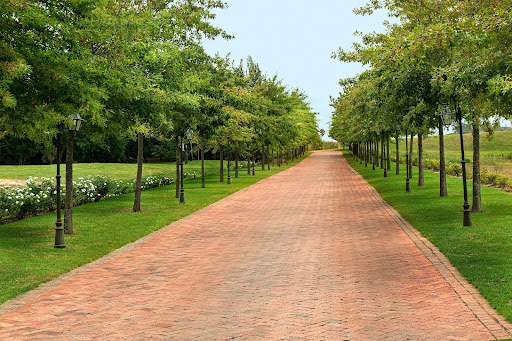
I’ll answer the following questions:
- What are driveway pavers?
- What benefits do driveway pavers offer?
- What types of driveway pavers are available?
- How do walkway pavers enhance outdoor spaces?
- What is the installation process for driveway pavers?
- What are the different types of walkway pavers?
Let’s get to the content!
What Are Driveway Pavers?
Driveway pavers are the building blocks used to create smooth, durable surfaces for driveways. Unlike traditional asphalt driveways, paver driveways offer a wide variety of design possibilities, from natural stone pavers to concrete slabs. They not only enhance the curb appeal of your property but also provide a long-lasting solution for your driveway needs.
When discussing driveway pavers, it’s important to consider the underlying issue of erosion control. Erosion can undermine the stability of your driveway, leading to uneven surfaces and potential damage to the pavers. Implementing effective erosion control measures is essential to maintain the integrity of your driveway’s foundation. Techniques such as proper grading, the use of retaining walls, and drainage solutions play a crucial role in preventing soil erosion around your driveway. To safeguard your investment and ensure the longevity of your driveway, explore Texas Clearing’s erosion control services, designed to provide stability and durability for your paved surfaces.
Definition of Driveway Pavers
Driveway pavers are individual paving units used to build driveways. They come in a variety of materials, including concrete, clay bricks, natural stones, and more. Each type of paver offers unique benefits in appearance, durability, and maintenance. Driveway pavers are known for their strength and ability to withstand heavy foot traffic and vehicle load, making them a popular choice for residential driveways.
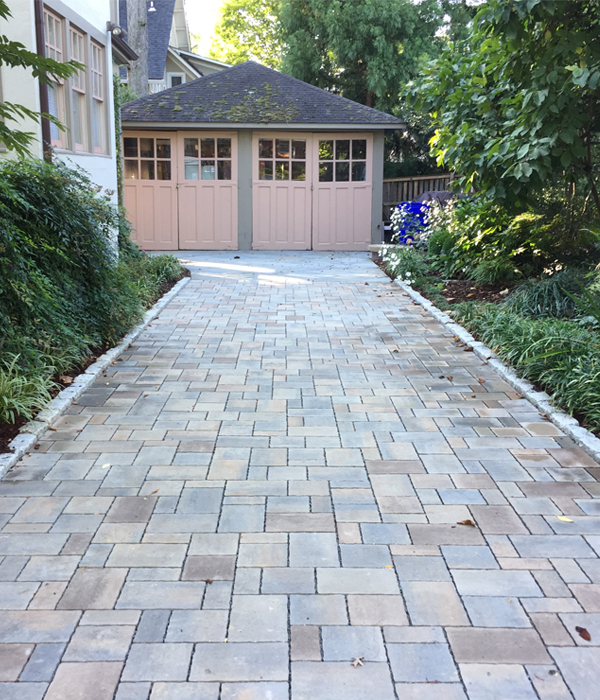
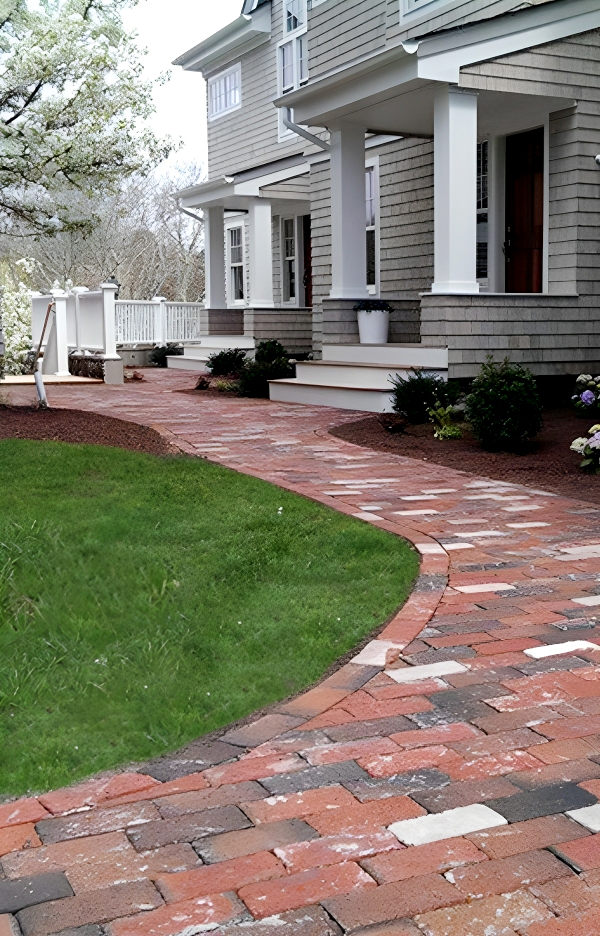
Benefits of Using Driveway Pavers
The benefits of using driveway pavers are numerous. They offer enhanced visual appeal with a wide range of colors and design possibilities, allowing homeowners to match their driveway with the overall style of their home. Driveway pavers also provide minimal maintenance requirements and are easy to repair. If a paver gets damaged, it can be replaced individually without affecting the entire driveway. Additionally, certain types of pavers, like permeable pavers, can improve drainage and reduce water pollution
What Are Walkway Pavers?
Walkway pavers are the materials used to construct pathways in outdoor spaces. They are similar to driveway pavers but are often designed to handle lighter foot traffic. Walkway pavers come in various materials and styles, allowing for creative and unique designs that enhance the beauty of outdoor living spaces.
Before installing walkway pavers, it’s often necessary to clear the land to create a suitable base and layout. Clear-cutting is a process that involves removing trees, shrubs, and other vegetation to prepare the area for walkway construction. This step is crucial for ensuring that the walkway is properly aligned and integrated into your landscape. It also helps in identifying any potential issues with the terrain that might affect the installation process. For efficient and environmentally responsible clear-cutting services, Texas Clearing offers expert solutions to prepare your land for a stunning and functional walkway.
Benefits of Walkway Pavers
Walkway pavers offer several benefits. They enhance the aesthetic appeal of outdoor spaces, creating beautiful pathways that complement your home’s exterior and landscaping. Walkway pavers are also durable and long-lasting, capable of withstanding various weather conditions. Additionally, they provide a safe, non-slip surface for walking, reducing the risk of accidents in your outdoor space.
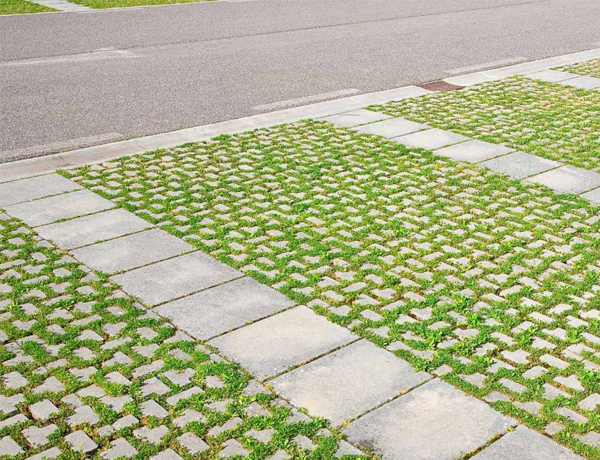
Types of Driveway Pavers
Choosing the right type of driveway paver is crucial for achieving the desired look and functionality. At Texas Clearing, we offer a wide selection of driveway pavers to suit every taste and need.
Concrete Pavers
Concrete pavers are a versatile and affordable option for driveways. They come in a wide range of colors and styles, from traditional cobblestone to modern designs. Concrete pavers are known for their durability and ease of maintenance, making them a popular choice for homeowners.
Permeable Pavers
Permeable pavers are an eco-friendly option that allows water to pass through the surface, reducing runoff and improving drainage. They are ideal for areas prone to heavy rains and can help in preventing water pollution.
Brick Pavers
Brick pavers offer a classic and timeless look for driveways. Made from baked clay, they come in various colors and can be laid in different patterns to create unique designs. Brick pavers are known for their durability and classical appearance.
Natural Stone Pavers
Natural stone pavers, such as flagstone and river rock, provide a unique and elegant look for driveways. Each stone is unique, offering a range of natural colors and textures. They are perfect for creating a driveway with a distinctive and upscale appearance.
Clay Bricks
Clay bricks are a traditional choice for driveways, known for their rich colors and durability. They can withstand heavy loads and provide a timeless look that enhances the curb appeal of any home.
River Rock
River rock pavers offer a natural and rustic look for driveways. Their smooth texture and varied colors can create a unique and attractive driveway that stands out.
Asphalt Driveways
Asphalt driveways are a common and cost-effective option. They provide a smooth and durable surface but lack the aesthetic appeal and design versatility of pavers.
Concrete Slabs
Concrete slabs are a simple and modern option for driveways. They offer a clean and sleek look with minimal maintenance requirements.
Design Details and Range of Colors for Driveway Pavers
The design details and range of colors available for driveway pavers are vast. From rich, earthy tones to vibrant hues, there’s a color palette to suit every home’s style. The base material of the pavers, whether it’s concrete, clay, or natural stone, influences the color and texture, offering a variety of design possibilities.
Range of Colors
The range of colors in driveway pavers is extensive, allowing for creative and personalized designs. Rich colors in clay bricks provide a warm and inviting look, while natural stone pavers offer subtle variations in hue that add character to your driveway.
Installation Process for Driveway Pavers
The installation process for driveway pavers is a meticulous task that requires precision and expertise. At Texas Clearing, our team follows a detailed process to ensure a high-quality and durable driveway.
Preparation Steps for Installing a Paver Driveway
The first step in installing a paver driveway is preparing the site. This involves removing the current driveway material, grading the area, and laying a compacted base layer. A bedding layer of sand is then added to provide a level surface for the pavers. Proper preparation is crucial for a long-lasting and stable driveway.
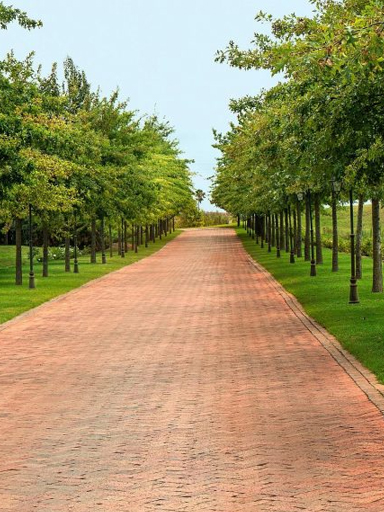

Types of Walkway Pavers
Walkway pavers, like driveway pavers, come in various materials and styles. Choosing the right type of walkway paver depends on the desired look, budget, and functional requirements.
Concrete Pavers
Concrete pavers for walkways are a versatile and affordable choice. They offer a wide range of design options and are durable enough to withstand foot traffic and weather conditions.
Clay Brick Pavers
Clay brick pavers provide a classic and elegant look for walkways. Their rich colors and traditional appeal make them a popular choice for enhancing the beauty of outdoor spaces.
Polymeric Sand
Polymeric sand is used to fill the joints between pavers, providing a strong and durable bond. It helps prevent weed growth and insect infestation, ensuring a clean and well-maintained walkway.
Gravel Paver Base
A gravel paver base is essential for a stable and long-lasting walkway. It provides a solid foundation and aids in drainage, preventing water accumulation and damage to the pavers.
Plate Compactor
A plate compactor is used to compact the base layer and bedding layer, ensuring a level and stable surface for the pavers. This step is crucial for preventing shifting and settling of the pavers over time.
Edge Restraints
Edge restraints are used to keep the pavers in place and maintain the integrity of the walkway. They prevent the pavers from shifting and help define the walkway’s shape and boundaries.
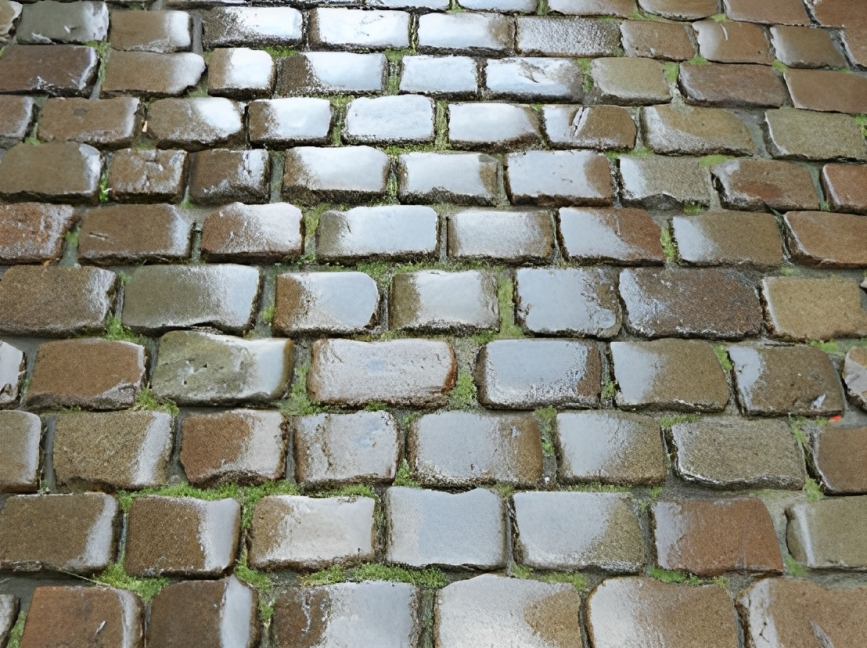
Installation Process for Walkway Pavers
Installing walkway pavers requires careful planning and execution to ensure a beautiful and functional result.
Choosing the Right Type of Material
The first step in installing walkway pavers is choosing the right type of material. Factors to consider include the style of your home, the level of foot traffic, and your budget. Each material offers different aesthetic and functional benefits, so it’s important to select one that meets your specific needs.
Measuring and Marking the Area to be Covered
Once the material is chosen, the next step is to measure and mark the area where the walkway will be installed. This ensures that the walkway is properly aligned and fits the intended space.
Calculating the Number of Square Feet Needed and Amount of Materials Required
After measuring the area, calculate the number of square feet needed and the amount of materials required. This includes pavers, sand, and any other materials needed for installation.
Preparing the Base Layer by Adding an Inch of Sand
The base layer is prepared by adding an inch of sand, which provides a level surface for the pavers. This step is crucial for ensuring the stability and longevity of the walkway.
Leveling with a Plate Compactor
Once the sand is in place, use a plate compactor to level the surface. This compacts the sand and creates a stable base for the pavers.
How Driveway and Walkway Pavers Fit Into Your Land Improvement Plan
Incorporating driveway and walkway pavers into your land improvement plan significantly enhances the overall look and functionality of your property. They not only improve curb appeal but also add value to your home. With a variety of materials and designs to choose from, pavers offer a flexible and durable solution for upgrading your outdoor space.
Incorporating driveway and walkway pavers into your land improvement plan necessitates a clean and safe work environment. Debris removal is a critical step in preparing the site for paver installation. It involves clearing away any unwanted materials, such as old pavers, rocks, and construction waste, ensuring a smooth installation process. A clean site not only facilitates efficient work but also ensures the safety of the installation crew and the integrity of your new driveway or walkway. For professional and thorough debris removal services, Texas Clearing is your reliable partner, ensuring your project starts on the right foot.
Get Your Free Quote
Interested in transforming your driveway or walkway with pavers? Contact Texas Clearing for a free quote. Our experienced team will work with you to select the perfect pavers and design a solution that meets your needs and budget.
FAQ
The best paver for a driveway depends on your aesthetic preferences, budget, and functional requirements. Concrete and brick pavers are popular choices for their durability and range of design options.
For walkways, clay brick and natural stone pavers are excellent choices for their beauty and durability. Concrete pavers are also a versatile and affordable option.
Generally, laying concrete is cheaper upfront than installing pavers. However, pavers offer greater long-term value due to their durability and ease of repair.
Yes, pavers can be installed over existing concrete, provided the concrete is in good condition and properly prepared.
It’s not recommended to put cement between pavers as it can crack and doesn’t allow for natural expansion and contraction. Polymeric sand is a better option for filling paver joints.
The main difference is in the type of pavers used and the installation process. Driveway pavers are typically thicker and more durable to withstand vehicle traffic, while patio pavers can be lighter and more decorative.
